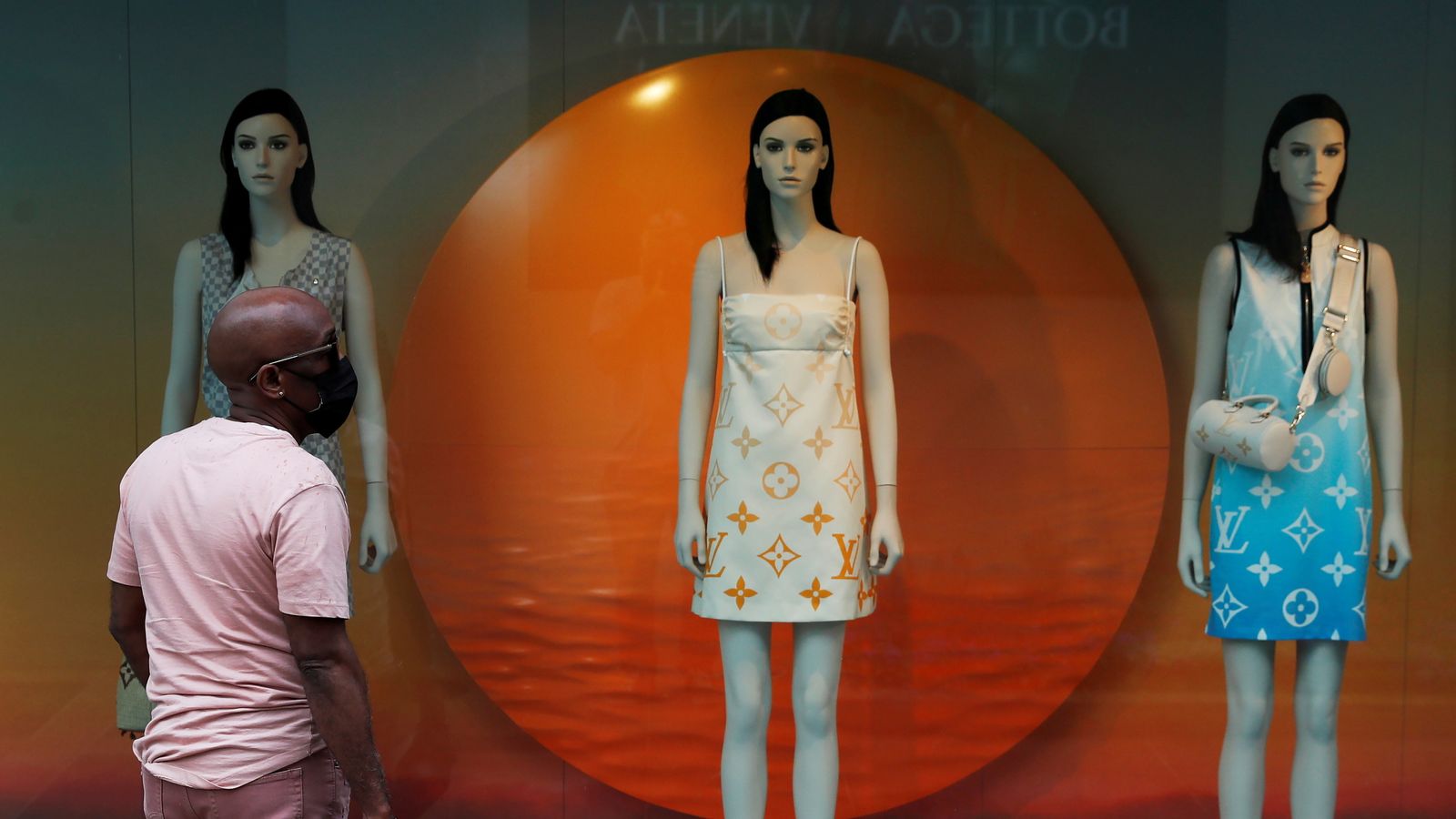American consumers faced rising prices last month but the pace of that rise has slowed, according to official figures released on Wednesday.
The US Department of Labor said that consumer prices were up 0.5% from June to July, compared with the previous monthly increase of 0.9%.
Compared with the same time last year, however, they have risen 5.4%.
If the calculations were stripped of energy and food prices, core inflation was up 4.3% in the past year, down slightly from the 4.5% yearly increase recorded in June.
However, some of the categories that had contributed to previous rises began to slow in July – used car prices were up just 0.2%, while air fares fell by 0.1%.
Also among the figures were:
• A 75% annual rise in the cost of vehicle rentals, despite a fall of nearly 5% last month
• Rents are up, with soaring house prices forcing many people to remain in their apartments
• Vehicle insurance was down in July after six consecutive monthly increases
• The price of a new car was up 1.7% in July and 6.4% in the past year – the largest jump since 1982
• The price of a hotel room was up 6% in July, and up nearly 22% compared to a year ago
• Restaurant prices were up 0.8% in July, the largest increase since 1981. Analysts said this is because the costs of food and wages is higher and this is being passed to consumers
Kathy Bostjancic, an economist at Oxford Economics, said June “marked the peak in the annual rate of inflation”.
She added: “That said, price increases stemming from the reopening of the economy and ongoing supply chain bottlenecks will keep the rate of inflation elevated.”
The US has seen some economic recovery as it reopens following what is thought to have been the worst of the coronavirus pandemic.
But rising inflation is holding this recovery back, cancelling out most of the benefits workers might have expected from higher pay.
It also increases pressure on the Federal Reserve’s policymakers, who are meant to keep inflation under an annual target of 2%.
Federal Reserve chairman Jerome Powell has said he expects the rise to be temporary, blaming the sudden shutdown and then reopening of the economy for the current supply shortages.
Republicans are blaming US President Joe Biden, especially his massive $1.9trn financial aid package, which was passed earlier this year.
The package included federal unemployment aid and stimulus cheques for much of the population.
Congress will consider even more spending in the coming weeks.
Regarding the consumer price data, a White House official told Reuters: “This is one month and we don’t want to put too much emphasis on it, but what we see in this trend is very consistent with the story we’ve been articulating for a number of months now.”
